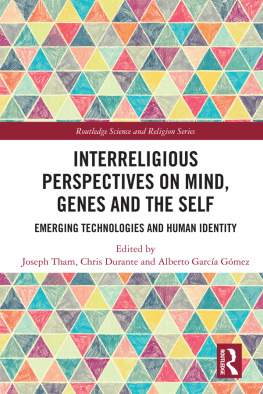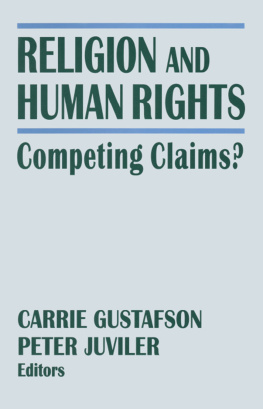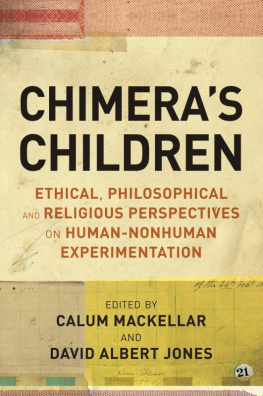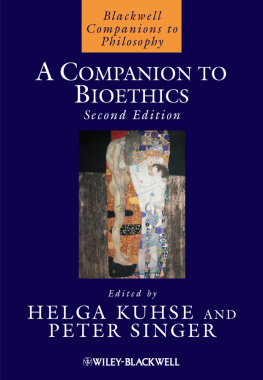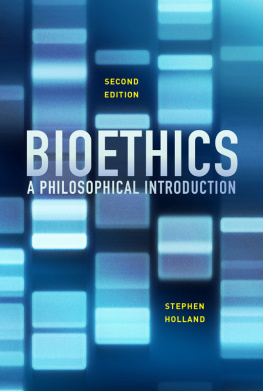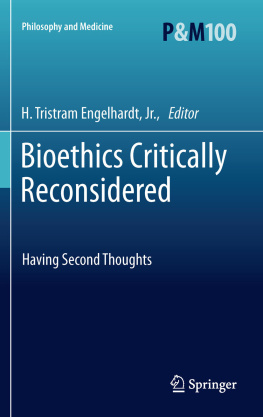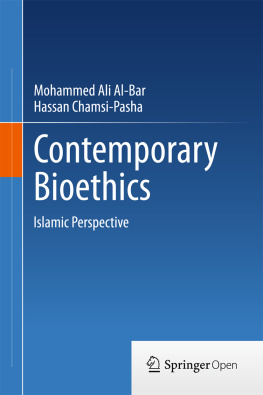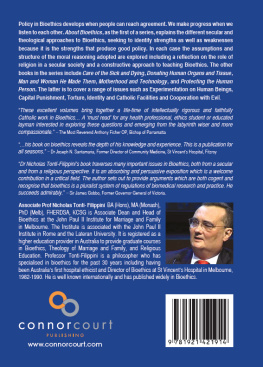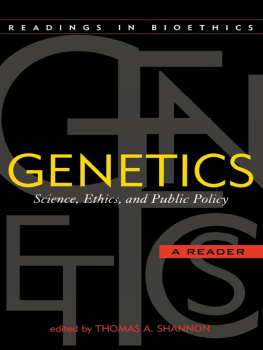Interreligious Perspectives on Mind, Genes and the Self
Attitudes towards science, medicine and the body are all profoundly shaped by peoples worldviews. When discussing issues of bioethics, religion often plays a major role. In this volume, the role of genetic manipulation and neurotechnology in shaping human identity is examined from multiple religious perspectives. This can help us to understand how religion might affect the impact of the initiatives such as the UNESCO Declaration in Bioethics and Human Rights.
The book features bioethics experts from six major religions: Buddhism, Confucianism, Christianity, Islam, Hinduism and Judaism. It includes a number of distinct religious and cultural views on the anthropological, ethical and social challenges of emerging technologies in the light of human rights and in the context of global bioethics. The contributors work together to explore issues such as: cultural attitudes to gene editing; neuroactive drugs; the interaction between genes and behaviors; the relationship between the soul, the mind and DNA; and how clinical applications of these technologies can benefit the developing world.
This is a significant collection, demonstrating how religion and modern technologies relate to one another. It will, therefore, be of great interest to academics working in bioethics, religion and the body, interreligious dialogue, and religion and science, technology and neuroscience.
Joseph Tham teaches bioethics at Pontifical Athenaeum Regina Apostolorum, Rome, Italy, and is the former Dean of the School of Bioethics. He is a Fellow of the UNESCO Chair in Bioethics and Human Rights.
Chris Durante is an Assistant Professor in the Department of Theology at Saint Peters University in New Jersey, USA, as well as a Fellow of the UNESCO Chair in Bioethics and Human Rights, where he serves as the Academic Coordinator of the Bioethics, Multiculturalism and Religion workshops.
Alberto Garca Gmez is the Director of the UNESCO Chair in Bioethics and Human Rights, Rome, Italy. He is Professor of Philosophy of Law and International Law at the School of Bioethics of Pontifical Athenaeum Regina Apostolorum in Rome. Furthermore, he is a researcher of the Human Rights Institute at Complutense University.
Routledge Science and Religion Series
Series editors:
Michael S. Burdett
Wycliffe Hall, University of Oxford, UK
Mark Harris
University of Edinburgh, UK
Science and religion have often been thought to be at loggerheads but much contemporary work in this flourishing interdisciplinary field suggests this is far from the case. The Science and Religion Series presents exciting new work to advance interdisciplinary study, research and debate across key themes in science and religion. Contemporary issues in philosophy and theology are debated, as are prevailing cultural assumptions. The series enables leading international authors from a range of different disciplinary perspectives to apply the insights of the various sciences, theology, philosophy and history in order to look at the relations between the different disciplines and the connections that can be made between them. These accessible, stimulating new contributions to key topics across science and religion will appeal particularly to individual academics and researchers, graduates, postgraduates and upper-undergraduate students.
The Roots of Religion
Exploring the Cognitive Science of Religion
Edited by Roger Trigg and Justin L. Barrett
The Intelligent Design Debate and the Temptation of Scientism
Erkki Vesa Rope Kojonen
Science and the Truthfulness of Beauty
How the Personal Perspective Discovers Creation
Robert Gilbert
Against Methodology in Science and Religion
Recent Debates on Rationality and Theology
Josh Reeves
Interreligious Perspectives on Mind, Genes and the Self
Emerging Technologies and Human Identity
Edited by Joseph Tham, Chris Durante and Alberto Garca Gmez
For more information and a full list of titles in the series, please visit: www.routledge.com/religion/series/ASCIREL
Interreligious Perspectives on Mind, Genes and the Self
Emerging Technologies and Human Identity
Edited by Joseph Tham, Chris Durante and Alberto Garca Gmez

First published 2019
by Routledge
2 Park Square, Milton Park, Abingdon, Oxon OX14 4RN
and by Routledge
52 Vanderbilt Avenue, New York, NY 10017
Routledge is an imprint of the Taylor & Francis Group, an informa business
2019 selection and editorial matter, Joseph Tham, Chris Durante and Alberto Garca Gmez; individual chapters, the contributors
The right of Joseph Tham, Chris Durante and Alberto Garca Gmez to be identified as the authors of the editorial material, and of the authors for their individual chapters, has been asserted in accordance with sections 77 and 78 of the Copyright, Designs and Patents Act 1988.
All rights reserved. No part of this book may be reprinted or reproduced or utilised in any form or by any electronic, mechanical, or other means, now known or hereafter invented, including photocopying and recording, or in any information storage or retrieval system, without permission in writing from the publishers.
Trademark notice: Product or corporate names may be trademarks or registered trademarks, and are used only for identification and explanation without intent to infringe.
British Library Cataloguing-in-Publication Data
A catalogue record for this book is available from the British Library
Library of Congress Cataloging-in-Publication Data
Names: Tham, Joseph, 1965 editor. | Durante, Chris, editor. | Garcia, Alberto, 1964 editor.
Title: Interreligious perspectives on mind, genes and the self : emerging technologies and human identity / edited by Joseph Tham, Chris Durante and Alberto Garca Gmez.
Description: Abingdon, Oxon ; New York, NY : Routledge, 2019. | Series: Routledge science and religion series | Includes bibliographical references and index.
Identifiers: LCCN 2018034630 (print) | LCCN 2018038476 (ebook) | ISBN 9780429456145 (e-book) | ISBN 9780429850851 (PDF) | ISBN 9780429850844 (ePub) | ISBN 9780429850837 (Mobi) | ISBN 9781138315754 | ISBN 9781138315754 (hardback : alk. paper) | ISBN 9780429456145 (ebk)
Subjects: LCSH: Genetic engineeringReligious aspects. | Genetic engineeringMoral and ethical aspects.
Classification: LCC QH438.7 (ebook) | LCC QH438.7 .I58 2019 (print) | DDC 576.5dc23
LC record available at https://lccn.loc.gov/2018034630
ISBN: 978-1-138-31575-4 (hbk)
ISBN: 978-0-429-45614-5 (ebk)
Typeset in Times New Roman
by Apex CoVantage, LLC
The UNESCO Chair in Bioethics and Human Rights (www.unescobiochair.org) organized a workshop on Bioethics, Multiculturalism and Religion and the papers submitted here form the collection of this edited volume.
This UNESCO Chair was established in 2009 with two Roman universities. It offers a university framework of reflection and study, providing information and fostering the application of bioethical principles in science, medicine and new technologies based on the Universal Declaration on Bioethics and Human Rights. Through basic education, research and information, it seeks to contribute toward the recognition and promotion of a global and comprehensive vision of bioethics, bringing to light universal values and principles as well as social and legal implications concerning human rights. By creating a community of persons who are interested in these values, it seeks to promote cultural dialogue and encounters in a spirit of solidarity.

